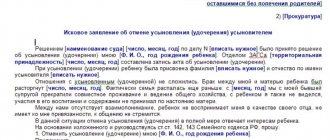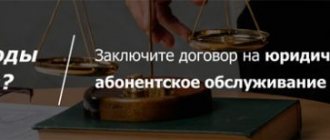Any citizen has the right to inherit his property, however, this process can be complicated by the behavior of the heirs themselves. This happens if they have committed or planned illegal actions against the testators in order to seize property or obtain personal gain. How to prove that an heir is unworthy is described in Article 1117 of the Civil Code of the Russian Federation.
Unworthy heir
In some cases, persons claiming an inheritance do not deserve it because of their lifestyle or behavior (in case of unlawful actions towards the testator). But he is excluded from the circle of heirs only by court decision. Without a judicial precedent to recognize a person as an unworthy successor, it is impossible to prohibit inheritance. To carry out the procedure correctly, you need to collect a package of documents to the court and wait for the official decision. Only interested parties who inherit property by law have the right to file a lawsuit to declare a co-heir dishonest.
Definition
Current legislation designates a specific list of citizens who may be excluded from receiving a share under a testamentary document.
The following are recognized as unworthy heirs:
- Successors who have committed illegal actions against the life and health of the owner of the property or against his relatives and other people specified in the will.
- People who forced the owner through intrigue, deception, threats and blackmail to bequeath property to them or in favor of third parties.
- Those who committed illegal and dishonest actions that allowed them to increase the share of transferred property. These include: concealment of information about the presence of relatives of the corresponding order or the presence of an unknown testamentary document.
- Those who failed to fulfill their obligations to care for the deceased when he needed help and material support.
- Deprivation of parental rights in relation to a child.
Legislation
In the legislation of the Russian Federation, the number of unscrupulous successors may include representatives from the queues nominated to participate in the inheritance procedure on the basis of Articles 1142-1145 of the Civil Code of the Russian Federation.
Filing a claim to recognize persons as unworthy successors is permitted if there is a queue for inheritance.
Deliberate recognition of a testator as dishonest on the initiative of the property owner is permitted exclusively in the direction of compulsory heirs of the first priority.
The property values of the deceased, whose only successor is refused in the inheritance procedure, and there are no potentially eligible participants in subsequent queues, are transferred to the state.
Who is impossible to recognize
The rights of incapacitated people and young children are protected by law, so they cannot be recognized as unscrupulous heirs. Succession occurs under any circumstances, including if property assets are transferred under a will in which they are not included.
Incapacitated citizens and young children cannot enter into inheritance on their own. Parents and guardians draw up documents for them with the consent of higher authorities.
Groups
There are several types of unworthy heirs, and according to the type of their behavior towards the deceased and co-heirs, these people can be divided into groups.
Unlawful trespass
This group of persons undertakes illegal acts against other co-heirs in order to increase their own share.
These include:
- Claimants who, through their own actions, tried to illegally increase the share of the inheritance, causing damage to the interests of other persons. For example, during a dispute, acting on sudden intent, a son kills his brother, while remaining a contender for the inheritance left by their parent. At the end of the investigation, the killer is sentenced and found unworthy of the property left behind. In the future, the inheritance left by the deceased father, according to the will and in the manner prescribed by law, remains to other claimants.
- A successor who deliberately infringes on the legal rights of other heirs claiming rights to receive an inheritance share. The unworthy person commits unlawful actions, persuading the deceased to recognize a larger part of the property for him or even to exclude other claimants from the will. A person achieves these goals by disparaging the dignity of other successors through slander, manipulation of the trust and feelings of the testator.
- A potential heir who deliberately destroyed or concealed a testamentary document in order to increase his share or exclude other persons from participating in the process of inheriting property values.
Unscrupulous parents
A parent who is officially deprived of rights in relation to his child, who is the owner of inherited property, cannot be a contender in the succession procedure. The basis for deprivation is the parent’s failure to fulfill the duties of raising and maintaining the child: failure to pay alimony (only if there is a court decision to collect it). In the absence of documented evidence of parental evasion of responsibilities towards the child, the issue is considered in court.
Those who evade the maintenance of the testator
Successors who deliberately evade fulfillment of the terms of the will. This includes improper lifetime maintenance of the owner of property assets, specified in the contract. If the applicant did not contact the deceased during the period when he needed care and financial assistance, and did not maintain contact, then he may be found in bad faith in court and deprived of legal succession.
Rights deprived by the court
During his lifetime, the testator himself may receive a court decision declaring the successor unworthy. After his death, this right is assigned to any of the heirs.
The category of citizens deprived of the right to inherit by a court decision includes:
- relatives of the deceased who evaded his maintenance, care and material support,
- persons who have committed deliberate illegal actions against a relative transferring property.
The law does not say exactly what crimes can lead to the deprivation of the applicant’s rights, but it clarifies that this is intentional harm to health and even an attempt on the life of the property owner. In the process of proving a successor's guilt, the motives and consequences of his actions are not taken into account. To make a decision, the very fact of his unlawful act is sufficient.
Required package of documents
In addition to the application, it is necessary to prepare a package of documents representing the evidence base. Each case is unique, however there is a generally accepted package for such cases:
- Receipt for payment of state duty;
- Documentary confirmation of the stated facts;
- Applicant's passport;
- Documentary confirmation of the death of the testator;
- Grounds for allocating a share to the plaintiff.
Confirmation of the defendant’s behavior can include: a decree on the payment of alimony, court decisions regarding evasion of duties.
Each case is unique, and an experienced lawyer can analyze the situation.
How to prove
Evidence is presented in the presence of the court in the presence of court decisions, acts, certificates, witness statements and other documents. Facts must be irrefutable and truthful.
What to look for
When presenting evidence of the successor’s dishonesty, attention should be paid to who the offense was committed against and whether there were legal grounds against which the attacker acted.
Things to keep in mind:
- If unlawful actions were carried out against co-heirs and the deceased, then confirmation of the fact of the commission of the act (which is criminal) will be required. Prove that the criminal was motivated by the motive of obtaining an inherited advantage (in case of murder of the owner of the property, the motive is not considered). It is also required to prove that the heirs and the testator himself actually suffered from the actions of the successor.
- When considering a civil offense (invalid power of attorney, will, application to renounce the property of the deceased, etc.), it is required to prove that it was the successor who committed the act and that it was directed against the property of the deceased, contrary to his will and the wishes of other claimants to the inheritance. Confirm that the defendant acquired benefits from his action, and his co-heirs did not receive (underreceived) their due share.
- If the successor did not fulfill the obligations to support the owner of the property, then a court decision on alimony and the defendant’s birth certificate are required. Confirm the presence of alimony debt, concealment of financial sources and facts of evasion of financial assistance. Judicial acts, certificates, witness statements and other documents may be considered as evidence.
Who benefits from it?
According to the law, any interested person has the right to demand that the heir be declared unworthy and deprived of his succession.
Clause 20 of Resolution No. 9 of the Supreme Court states that a person is considered interested:
- denied the right to inherit,
- seeking to increase its share,
- which may be affected by the transfer of title to the deceased's property.
Sample statement of claim
The outcome of the case depends on the literacy of the statement of claim. There is a generally accepted form that looks like this:
- The “header” contains information about the judicial authority, location address, the plaintiff, his contact information, information about the defendant;
- In the middle is the title of the document;
- The text of the letter describes information about the testator, date of death, place of last residence, inheritance mass, and the plaintiff’s involvement in the inheritance. Information about the defendant, the grounds for recognizing the fact of unworthiness, and documentary evidence of the facts are indicated;
- Indicate the list of attached documents;
- The text of the request for recognition of the fact, the legislative norms on which the case is based;
- The paper is certified with a signature and date.
Legal consequences
Legal consequences for the unscrupulous and co-heirs occur after the first is recognized as such.
The outcome of the decision for an unworthy successor is:
- disinheritance by law and by will,
- loss of the right to an obligatory share,
- loss of the right to testamentary refusal,
- preventing a co-heir from ceding an inherited share in favor of the excluded one and vice versa,
- division of the due share among the remaining candidates,
- loss of the right of inheritance for the followers of an unworthy successor (his children, grandchildren and parents),
If the heir was found to be dishonest before the inheritance was closed, the notary takes this into account when dividing the estate of the deceased and issues a certificate to the remaining relatives.
If the defendant is determined to be unworthy after the case is closed, the issue of canceling the inheritance certificate and redistributing shares in the property is resolved. In the event that an unscrupulous successor managed to sell the received share, the property must be reclaimed from someone else’s possession or monetary compensation must be demanded.
How is the hereditary mass divided?
The issue of dividing the estate when determining one of the successors as unworthy depends on whether a will has been drawn up.
If, according to a testamentary document, all property should go to one heir who was found to be dishonest, then execution of the document is impossible. Property is inherited by applicants based on the order of priority established by the degree of relationship to the deceased.
In the case where the removed successor was entitled to a part of the property, it is divided only between the persons specified in the will.
If the deceased wanted to transfer a certain thing (apartment, deposit, car) to a claimant deprived of the right of inheritance, then this thing is redistributed among the people specified in the will.
In the absence of a testamentary document, property is divided between relatives depending on the order of priority.
If the removed applicant was the only representative in his turn, then the successors of the next turn take over the property.
If he is not the only one in his turn, then his share is divided among other co-heirs.
In which court should the claim be filed?
The choice of judicial authority depends on a number of circumstances. You can contact the defendant’s place of residence. In the absence of information regarding the residence of the defendant, the claim is filed at the location of the estate.
We recommend reading: Entering into inheritance
An incorrect choice of the court branch, an insufficiently prepared evidence base, or the absence of a receipt for payment of the state duty may become reasons for refusing to satisfy the plaintiff’s request.
Protection of the rights of the heir
In some cases, the heir is forced to protect himself from attempts to exclude him from the inheritance.
If the grounds for removal no longer exist (the testator has forgiven the relative or the parent has regained his rights), then the notary in charge of the case must be informed about these facts. Otherwise, to renew your rights, you will have to challenge the notary’s decision in court.
If a person has been excluded from a share in the will, then the document can be declared invalid in court. The citizen will have to prove that he was deprived of the right to inherit by fraud, manipulating the feelings and emotions of the testator in favor of other people.
To protect his name and rights, the heir must adhere to several rules:
- You cannot succumb to provocations from conflicting relatives.
- Avoid disputes, quarrels and conflicts with co-heirs.
- Do not collude against co-heirs.
- Do not falsify documents.
- Do not form coalitions with some relatives in order to deprive others of the right of inheritance.
- You cannot attempt to dispose of the property of the deceased before the due time.
- Do not skip court proceedings and take the claim for deprivation of inheritance rights seriously, even if the grounds are false.
- Keep in touch with the notary, find out about the progress of the case.
Recovery procedure
Restoring the rights of unworthy heirs is common in judicial practice, and there are often cases when the successor is again recognized as full-fledged. In this case, a repeated will is drawn up indicating this person as the heir. This document is legally binding. A repeated will can be challenged in court if the “forgiven” heir again commits illegal actions against the testator.








